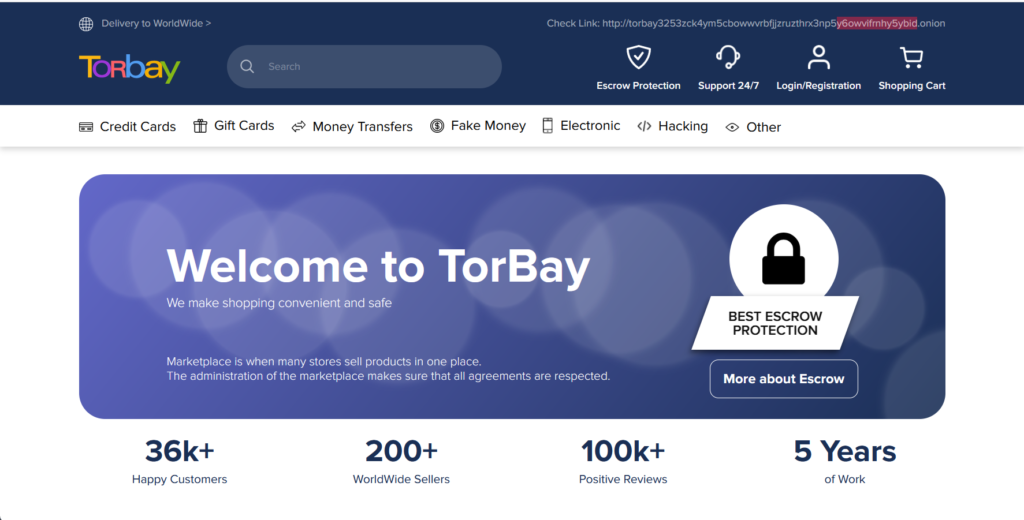Table of Contents
ToggleTorBay – TOR Scam Report (1)
Onion Link: http://torbay3253zck4ym5cbowwvrbfjjzruzthrx3np5y6owvifrnhy5ybid.onion
Scam Report Date: 2023/06/13
Client Scam Report Breakdown
Original Report Summary:
The client’s report highlights a transaction gone wrong on an online marketplace, involving the seller “MoneyHub” who was offering PayPal transfers. According to the report, the buyer transferred 75 EUR worth of Bitcoin (BTC) to the seller, but after the payment was completed, the seller and marketplace ceased communication entirely. Unfortunately, no screenshots or other proof of the transaction were provided due to the marketplace’s privacy policy. This left the client with no way to recover their funds or verify the scam. The marketplace in question is not named explicitly, though it is implied that it was likely a deep web marketplace due to the anonymity of the transaction and the mention of privacy policies restricting evidence collection.
Terminology and Definitions
To understand this report, it is essential to define some of the key terminology involved. Firstly, PayPal transfers refer to the practice of moving funds from one PayPal account to another. In this context, the seller would have presumably promised to transfer a sum of money to the buyer’s PayPal account after receiving the Bitcoin. However, PayPal transfers are commonly used in scams on deep web marketplaces as they offer a sense of legitimacy but allow scammers to disappear with no trace. Secondly, BTC or Bitcoin is a decentralized digital currency that enables anonymous peer-to-peer transactions. Given its anonymous nature, Bitcoin is a preferred currency on many underground markets, but it also makes it difficult to trace payments or reverse fraudulent transactions. Lastly, deep web or dark web marketplaces are online platforms that operate via encrypted networks, making transactions and communications difficult to trace by authorities. These marketplaces are notorious for scams because of their lack of regulation and anonymity.
Scam Indicators and Preventative Advice
There are a few red flags within this report that point to a likely scam scenario. First, the buyer mentions that communication was cut off immediately after the BTC was sent, which is a classic sign of fraud on deep web marketplaces. Scammers often engage in swift, upfront communication to build trust but disappear once they receive payment. Another significant issue is the lack of screenshots or proof of the transaction due to the marketplace’s privacy policy. While marketplaces often tout privacy to protect users, these policies can prevent victims from gathering crucial evidence in the event of a scam. To avoid similar situations, buyers should be cautious of sellers who offer high-value services like PayPal transfers without a proven track record. It is also advisable to choose platforms that offer escrow services, which hold the funds until the agreed-upon service or product is delivered. Escrow services add an extra layer of protection in cases like this where trust is low and fraud is prevalent.






